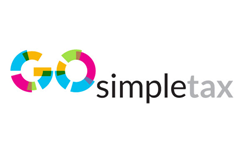
Statistics suggest that 5.6 million people in the UK now hold crypto assets (often shortened to crypto), which is about 11% of the adult population. Although the buzz around crypto isn't what it was, large numbers of people around the world continue to invest. But what many UK investors either deliberately ignore or innocently fail to realise is that UK tax is often payable after the disposal of crypto assets.
What are cryptocurrencies?
Cryptocurrencies are the most popular and widely known type of crypto asset. They don't exist in physical form, rather they are digital currencies exchanged through online networks that don't have any backing, control or maintenance from a centralised authority such as a government or bank.
Individual ownership records are stored in a digital ledger, which is a computerised database that uses cryptography to secure transaction records, control additional coin creation and verify ownership transfer.
Crypto assets can be bought and sold on crypto asset exchanges. Typically, cryptocurrency value fluctuates more than government-issued currencies. Well-known examples of cryptocurrency include Bitcoin (the first decentralised cryptocurrency, which was launched in 2009), Ethereum, Tether and Litecoin, but there are many others.
HMRC getting tougher on crypto tax avoidance
Some investors deliberately fail to report their taxable gains from the disposal of crypto assets, because they believe they're invisible and HMRC won't find out about them. It's a mistake and imminent changes are likely to mean HMRC is more likely to find out about unreported crypto gains.
The UK government is consulting on how to implement the OECD Crypto Asset Reporting Framework (CARF) and amendments to the Common Reporting Standard (CRS2). The CARF is a brand new standard that addresses crypto asset tax non-compliance, while CRS2 is an update to the existing framework on offshore accounts. Both seek to make it much harder to conceal taxable crypto gains.
In late 2023, HMRC launched a nudge email campaign aimed at those it believed to have unreported crypto asset gains. HMRC still has unreported crypto asset gains firmly in its sights, so investors are being advised to report their gains and pay all tax due.
How much tax is payable on crypto gains?
Capital Gains Tax (CGT) can be payable if you sell your crypto, exchange it, use it to pay for goods or services, give it away (unless it's to your spouse/partner) or donate it to charity. Your gain is the difference between the buying and selling price. If you were given crypto that you later disposed of, to calculate your gain, you must find out the market value when you took possession.
- Once your total taxable gains go over the CGT tax-free allowance threshold (£3,000 for the 2024/25 tax year), you'll pay 20% CGT on your crypto gains above the threshold if you're a higher or additional rate income tax payer (ie your taxable income is £50,271 or more a year).
- If you're a basic rate income tax payer (ie your taxable income is £12,571-£50,270 for the year), you'll pay CGT of 10% on gains up to the £50,270 threshold and 20% on gains above this threshold.
- The CGT tax-free allowance was £6,000 in the 2023/24 tax year. This has been halved in 2024/25 meaning more people will potentially need to pay CGT on crypto and other taxable gains.
Need to know! Some allowable expenses are CGT deductible including: advance transaction fees; advertising for a buyer or seller; drawing up a transaction contract; valuation costs paid to others to work out a transaction gain. You can also use capital losses to reduce your gain, as long as you first report to HMRC.
To report taxable crypto gains, most people complete a self assessment tax return after the end of the tax year in which the gain was made. If you're not already registered you'll need to register for Self Assessment. Alternatively, you can use the real-time Capital Gains Tax service.
 New tax year – new you
New tax year – new you
You can file your self-assessment from the 6th April. Know your tax owed and start the tax year in control.
For self-employed individuals, sole traders, or those with non-PAYE income, GoSimpleTax provides direct self-assessment filing with HMRC, offering helpful hints and savings tips throughout the process. Let GoSimpleTax handle all calculations.
Many crypto assets are traded on exchanges that use overseas currencies. If this applies, the value of any gain or loss must be converted into pounds sterling when completing your self assessment tax return.
You must maintain separate detailed records for each of your cryptocurrency transactions stating: token type; disposal type; disposal date; total tokens disposed; tokens remaining; token value in pounds sterling; and wallet addresses. HMRC can ask to view your records when carrying out a compliance check.
Need to know! If HMRC believes you're trading in crypto rather than occasionally investing, you may have to pay income tax and National Insurance, because you're running a business.
What if you should have reported crypto gains but didn't?
If you do not report taxable crypto gains to HMRC, you might find that you need to pay the tax owing, any interest due and a significant "failure to notify" penalty. Those found guilty of deliberate tax evasion can face criminal prosecution and a custodial sentence in the worst cases.
If you think that you owe tax on previous crypto gains, it's best to voluntarily come forward before HMRC opens an enquiry. If you voluntarily make a disclosure, the penalties can be much lower or non-existent where innocently made.
If HMRC opens an enquiry sending you a nudge email and you have failed to do anything, it's likely to lead to higher penalties. HMRC has set up a disclosure service for crypto assets, intended to make the process quicker and easier for taxpayers.
More information on crypto assets and tax
- HMRC has published a crypto assets manual for individual investors, which explains the above points in deeper detail.
Copyright 2024. Sponsored post by Mike Parkes of GoSimpleTax - tax return software that can help you manage your self assessment.